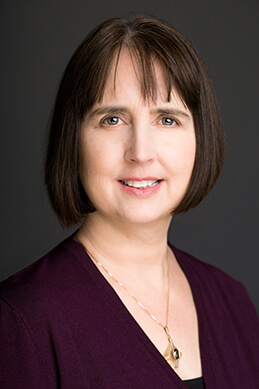- September 05, 2018
- By Alexander A. Pyles
A carefully organized Russian government disinformation campaign is threatening to upend Western democracy, and the United States doesn’t have the tools to effectively fight back.
That’s according to Sarah Oates, professor and senior scholar at the Philip Merrill College of Journalism, who will spend the next year in an intensive effort to give policymakers a way to change that.
“I’m interested in putting all the pieces of Russian propaganda together so we can understand its shape and direction,” said Oates, who for more than two decades has studied the Kremlin and the ways Russian media deliver that government’s messaging. “There’s not a lot of coherent understanding about exactly how this propaganda is getting to our media system.”
Oates begins a yearlong fellowship this week at the Woodrow Wilson International Center for Scholars in Washington, where she will work with other scholars to develop a method for detecting and deterring Russian propaganda as it moves through the U.S. media ecosystem.
American intelligence officials say Russia covertly tried to influence the results of the U.S. presidential election in 2016, in part by distributing disinformation on social media. National security officials warned last month that Russia is trying to interfere in the upcoming midterm elections.
Messages may begin on social media, be amplified by Russian propaganda websites masquerading as news organizations, get picked up by websites espousing values of the alt-right—an offshoot of conservatism mixing racism, white nationalism and populism—and, ultimately, find their way into mainstream news stories.
Stopping the spread of disinformation is especially difficult in the U.S., where the free press is a pillar of democracy. Russian media is controlled by the Kremlin.
“America’s at a big disadvantage in this propaganda war. We are supposed to represent media freedom and freedom of speech, so we really allow a wide latitude in our media system,” she said. “And the Russians don’t.”
It’s not Oates’ first foray into developing a tool to identify and combat propaganda. Last year, she started to work with Joe Barrow, a Ph.D. student in the Department of Computer Science, to build PropagandaIQ, a web-based program designed to help journalists track narratives in media.
“You can think of a more targeted, more advanced search engine that has some notion of what journalists want to track,” Barrow said.
Barrow said it’s difficult for individuals to track disinformation campaigns. Using computational linguistics—computer science techniques applied to language analysis—the program can help journalists identify a narrative thread by tracking keywords and marking suspect documents.
Identifying and stopping the propaganda is critical, Oates said, because of Russia’s objective: to topple democracy by eliminating the free media. Unchecked disinformation confuses reality, heightening the tension between people already divided along political lines.
“For the Russians, this isn’t some kind of fraught debate about democracy,” Oates said. “It’s an opportunity to destroy it.”
Topics
People